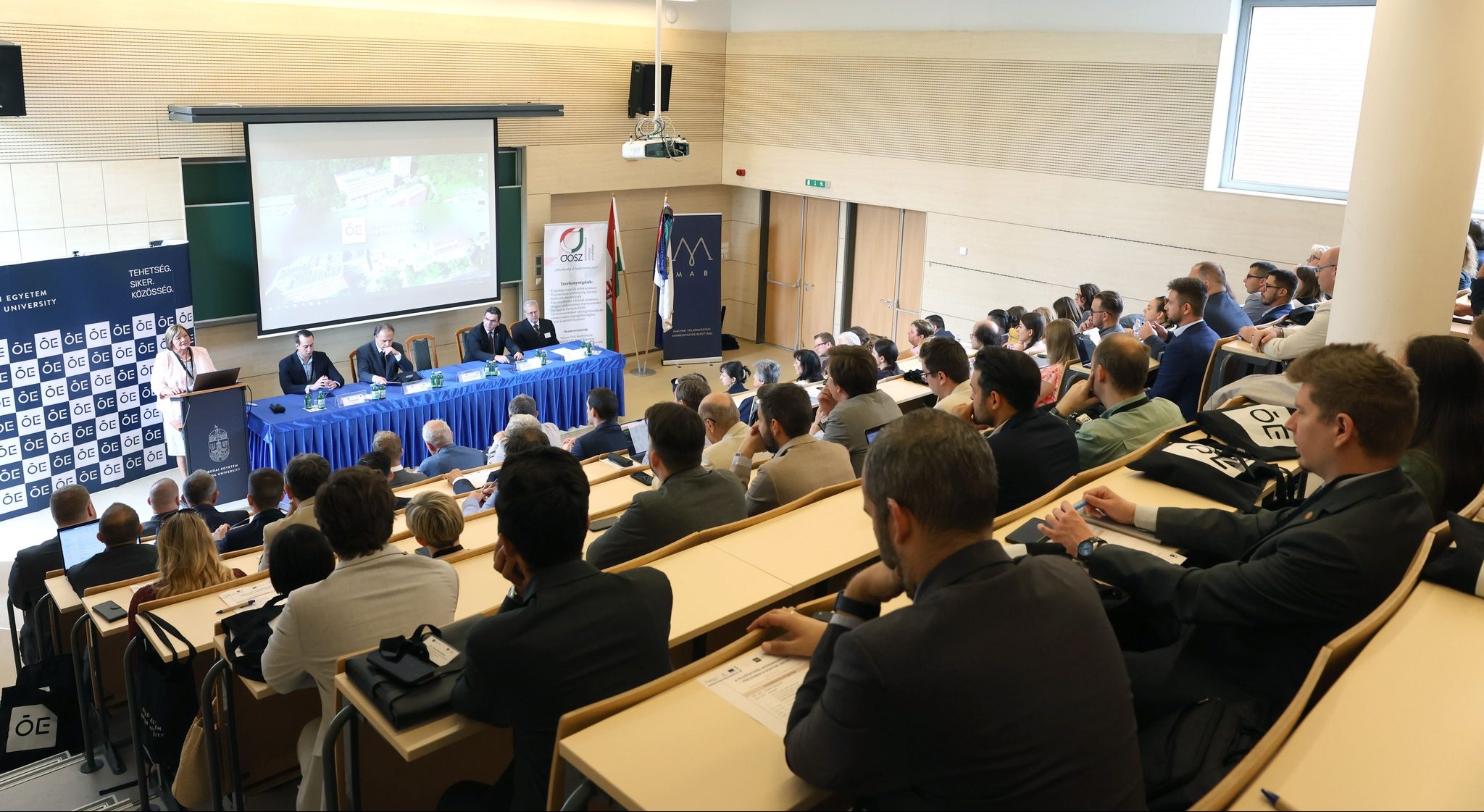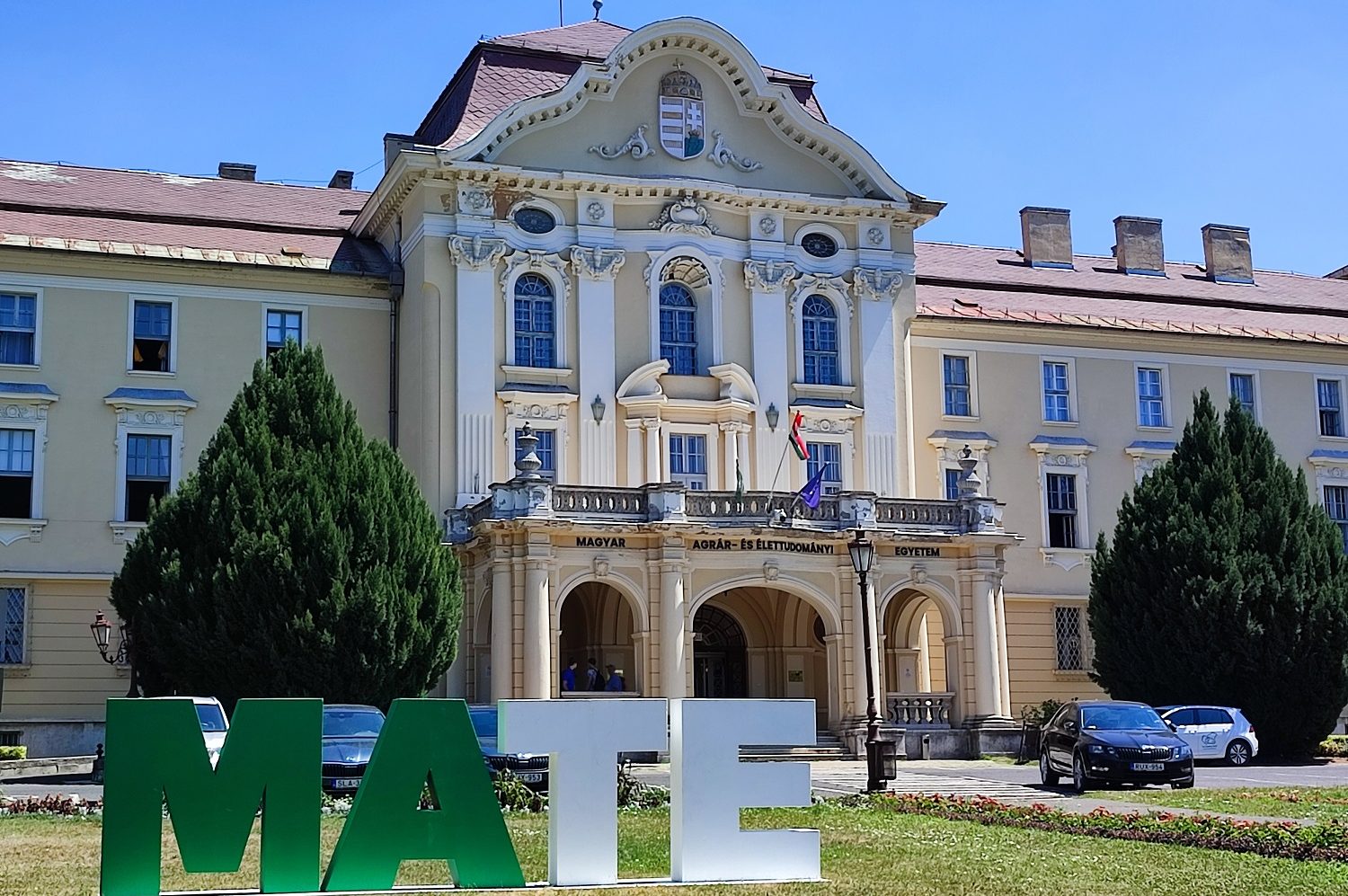
Balázs Hankó said that "In addition to scientific publications, a patent is also worth a doctorate."Continue reading

The Secretary of State for Innovation and Higher Education of the Ministry of Culture and Innovation called the model change of higher education institutions a success at the closing ceremony of the Hungarian University of Agricultural and Life Sciences (MATE) Senate on Thursday in Gödöllő (central Hungary).
Balázs Hankó said that the Hungarian University of Agricultural and Life Sciences is among the world’s top 250 agricultural universities, its funding having been doubled to HUF 25 billion (EUR 65 million) a year, and with available resources despite the war situation in Ukraine.
Autonomy, competitiveness, and predictability are the pillars of the new university structure; the state has taken a back seat, he said, adding that the success of the model change is also shown by the fact that 33 percent more people have chosen one of MATE’s courses as their first choice this year.
“However, we want to be even more successful, that’s why we launched the Neumann János program,” which aims to be among the top ten innovators in Europe by 2030, but this is only possible with top universities, the State Secretary said.
Balázs Hankó noted that “we also have counter-attackers in Brussels who say no to Hungarian researchers and Hungarian students.” However, the government will provide Hungarian researchers with the necessary resources for international cooperation, and there will also be a mobility program, he stressed.
In 2024, all the resources will be available to ensure a stronger, more extensive mobility program, because we are in favor of European cooperation,”
he said.
On this year’s higher education admission results, the State Secretary said that 27 percent more students applied than last year, and eight out of ten students start their studies with a state scholarship, which means one and a half million forints (EUR 1,286) per student per year.
He stressed that a predictable career path for researchers in the agricultural field would be ensured. The success of our universities, including MATE, is the key to the success of our nation and our future,” Hankó underlined.
Rector of the university, Csaba Gyuricza, said that this year, 3,863 students graduated from the university, while the number of applicants increased by more than 40 percent to 8,388. Their long-term goal is to place the renewed MATE among the top 30 agricultural universities in the world.
“We have established an academic backbone for agricultural development,” said the rector. He added that they are working to “transform the negative image of agriculture into a realistic, positive one.”
We are striving to train ready-to-do, practically-minded professionals in all areas of life sciences for the coming decades, as quality agriculture-specialists are the key to agricultural development,”
highlighted Gyuricza.
He pointed out that the number of Hungarian higher education institutions on university lists is increasing, and MATE has also moved up another fifty places in one of the most well-known rankings.
The success of MATE is also due to its network of research partners, joint publications, and the growing number of foreign students.
Gyuricza remarked that the university’s energy consumption was wasteful, but the institution has spent more than HUF 10 billion (EUR 26 million) on energy modernization of buildings and classrooms, and several new courses have been launched in line with 21st century trends.
Via MTI, Featured photo via Facebook/Magyar Agrár- és Élettudományi Egyetem